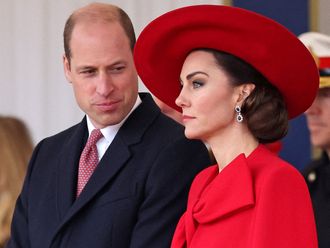London : The son of a distinguished musician has escaped prosecution for helping his parents commit suicide.
A criminal trial of Caractacus Downes, who took his parents to the Dignitas clinic in Switzerland last summer, would be against the public interest, said the Director of Public Prosecutions, Keir Starmer QC.
The decision was the first test of the new rules on assisted suicide prosecutions, laid down by Starmer last month.
His verdict means that no assisted suicide prosecution has been brought against any of the relatives or associates of the 100-plus people who have travelled to the Zurich clinic to die.
It closes the case of the deaths of Sir Edward and Lady Joan Downes, whose son watched them as they lay dying from barbiturate poisoning.
Lady Joan, 74, a ballet dancer and choreographer, was suffering from terminal cancer.
She had been married for 54 years to Sir Edward, a former Principal Conductor of the BBC Philharmonic Orchestra.
Sir Edward, 85, while coping with near blindness, increasing deafness, and ‘the ailments of very old age', was not dying.
Downes, 42, booked a hotel room in Zurich for his parents, even though they had been able to book it themselves, Starmer said.
He also stood to gain ‘substantial benefit' from the death of his parents, who owned a large house in Blackheath, South-East London.
But Starmer added: "Mr Downes' parents had reached a voluntary, clear, settled and informed decision to take their own lives and in assisting them, Downes was wholly motivated by compassion." The Crown Prosecution Service also examined evidence against the Downes' daughter, Boudicca Downes, but there was nothing to show she had carried out any act in England and Wales that helped them commit suicide.
Assisted suicide is a crime under the 1961 Suicide Act, and can result in a prison sentence of 14 years.
After being instructed by the Law Lords to draw up new guidelines, Starmer last month ruled that six factors would count to show a public interest against prosecution.
These were that the victim had reached a voluntary, clear, settled and informed decision; the suspect was wholly motivated by compassion-assistance rendered was minor; the suspect tried to persuade the victim to live; the suspect was reluctant to help; and the suspect helped the police inquiry.
Care Not Killing spokesman Dr Peter Saunders said: "The term ‘wholly compassionate' remains problematic. What does ‘wholly' mean? It will always be in the interests of an assister to claim that the act was ‘wholly compassionate', but the key witness — the victim — will be unable to give contrary evidence."











